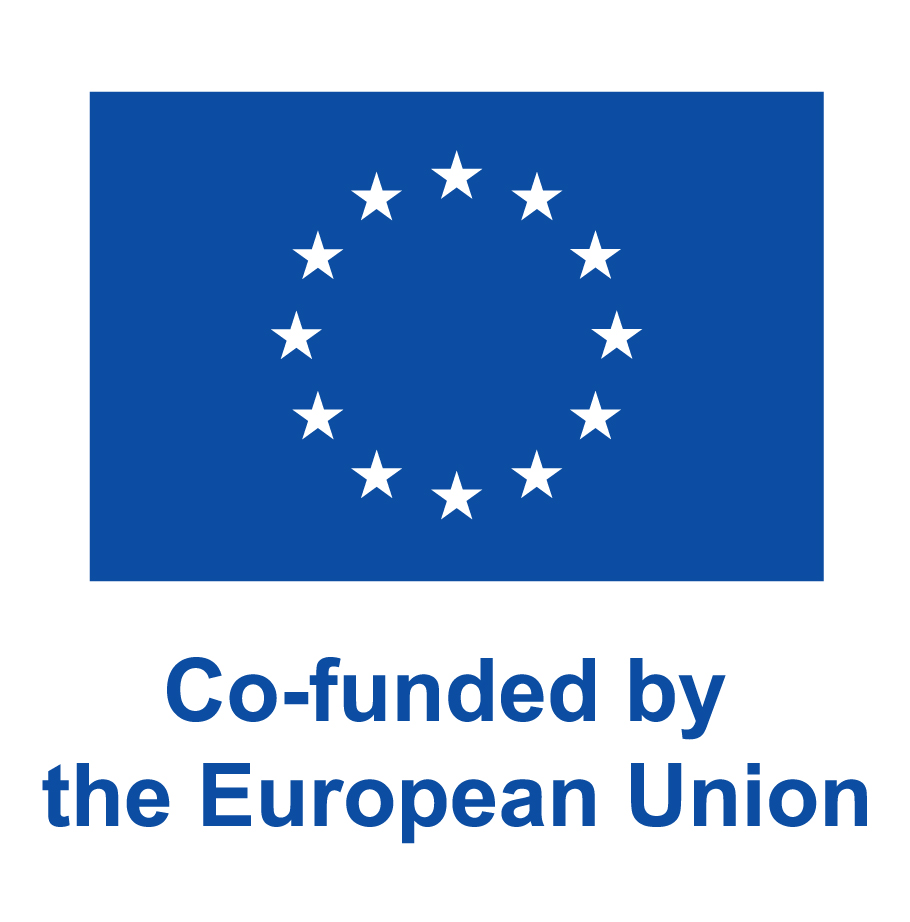Why Erasmus+?
- No tuition fees at the host institution
- Financial support of up to 520 Euro per month of stay; travel support possible.
- Additional financial support for green travel and students with fewer opportunities
- Inclusion support for students with health issues, disabilities or child(ren) accompanying their parents abroad
- Recognition of classes and theses completed abroad
- 1-2 additional tolerance semesters at Uni Graz
- Free language courses via EU-Academy
- Additional „Auslandsbeihilfe“ (study allowance abroad) for recepients of the Austrian “Studienbeihilfe” (Austrian study allowance).
Mag. Vanja Müller, MA
- Phone:+43 316 380 - 2212
Helene Penzinger, BA
- Phone:+43 316 380 - 1244
Mag. Karin Schwach
- Phone:+43 316 380 - 1245
Katherin Saldias Sánchez, Lic. Lic.
- Phone:+43 316 380 - 5848
E-Mail: erasmus.outgoing(at)uni-graz.at Universtitätsplatz 3, 8010 Graz
Office hours: Mon-Fri 9:30 a.m. - 12 p.m. Wed additionally 1 p.m. - 3 p.m. as well as by appointment
Course-free times
(semester/summer break...):
Mon-Thurs 10 a.m. - 12 p.m.
At the info events on the Erasmus+ application process (in German only), you will learn more about the following topics:
- search of the host university
- preparation of your application
- submission of your application in Mobility-Online
Upcoming Info events:
- Monday, December 15, 2025, 11:00 – 13:00, HS 62.01
- Wednesday, January 14 2026, 10:00 – 12:00, HS 15.13
past dates at faculties and institutes
REWI: November 19, 2025, 11.30 – 13:00, HS 15.11 (RESOWI B1)
Romance Studies: November 25, 2025, 19:00, Department for Romance Studies (SR 33.3.088)
ESS: November 27, 2025, 10:00 - 11:30, LS 15.02
SOWI: December 10, 2025, 13:30 -15:00, HS 15.06
ITAT: December 04, 2025, 17:00, „Simultanraum“ 0.008, ground floor
Theology: December 04, 2025, 17:00, UZT (Heinrichstrasse 78) SR 47.11
The dates are updated on an ongoing basis.
Financial support
You will receive a mobility grant to cover the increased cost of living in the host country. To receive this grant, you have to be physically present at the host institution. To receive this grant, you have to be physically present at the host institution.
Important: No double funding
Double funding for one and the same activity from EU funds is not permitted.
Receiving an Austrian or foreign study grant, foreign grant or provincial grant does not constitute double funding, as long as it does not cover your with Erasmus+ connected travel costs.
Current grants for stays in the academic year 2025/26
| Group | Countries | per month of stay |
| 1 | Belgium, Denmark, Germany, Finland, France, Ireland, Iceland, Italy, Liechtenstein, Luxembourg, Netherlands, Norway, Sweden | € 520,- |
| 2 | Estonia, Greece, Latvia, Malta, Portugal, Slovakia, Slovenia, Spain, Czech Republic, Cyprus | € 470,- |
| 3 | Bulgaria, Croatia, Lithuania, Northern Macedonia, Poland, Romania, Serbia, Turkey, Hungary | € 470,- |
| SEMP | Switzerland | CHF 380-440**exact information will be provided by the host university! |
The Erasmus+ travel support is determined using the Distance Calculator, which calculates the distance between the University of Graz and the host university (or, if applicable, the campus where you are studying abroad).
Students who travel more than half of the distance (back and forth) in an environmentally friendly manner (bus, train, carpool, bicycle) receive the higher travel allowance for environmentally friendly travel.
For green travel, you can receive up to 6 additional travel days for which you will receive the mobility allowance. One travel day corresponds to one calendar day.
Below 500 km, please consider travelling with low-emission means of transport (green travel)!
In case you receive travel support from other funding sources (e.g. travel grant as part of the Austrian study grant for stays abroad, BAföG, etc.), you are not eligible for the Erasmus+ travel support.
We will send you detailed information about the eligibility for travel support via email.
In addition to the mobility grant mentioned above, there are other financial grants ("top-ups"). In order to receive the top-ups, you will have to submit additional documents.
This is a monthly grant of 250 euros, which can be applied for by the following groups of people:
- Students with children requiring care who are taken to the place of study
- Students with disabilities (all students with a disability pass)
- Students with health problems if this results in increased financial expenses during their stay abroad (compared to their stay in the sending country; allergies and food intolerances are excluded). This health status must already exist before the start of the stay
The top-up cannot be added together. This means that students who fall into several of the above-mentioned categories (e.g. a person with a disability who takes the child with them on their stay) only receive a top-up of 250 euros per month.
In case you feel that you belong to one of the mentioned groups, please contact Karin Schwach (erasmus.outgoing(at)uni-graz.at). In this way, we can have a look at your situation individually and advise you in the best possible way.
Inclusion support should cover additional financial costs incurred primarily by participants with physical, mental or health impairments. These costs are billed according to actual costs.
Inclusion support also enables a preparatory visit and supports these additional costs. Accompanying persons can also be financed in this way.
The following people can apply for inclusion support:
- Students with fewer opportunities (see above)
- Students who do not belong to the group of students with fewer opportunities, but who can nevertheless prove that they have a real need for additional financial support on a real cost basis
Additional costs
Additional costs arise, for example, if due to a particular situation
- Costs are incurred that would not be incurred without mobility
- costs are incurred that would not normally be incurred at the sending organization
- higher costs are incurred for the same needs in the destination country than at the sending organization
- a person cannot be mobilized alone
Costs not eligible for funding
Not covered by inclusion support:
- Costs that are covered by (health) insurance (e.g. medication, medical treatment, etc.)
- Therapy costs: unless there is proof that the costs in the host country are higher than in the sending country and that the (health) insurance and the deductible to be paid in the sending country do not cover the costs abroad (the difference can then be covered)
- Costs that participants regularly incur in the country of the sending organization even without mobility (e.g. deductible etc.)
- Costs that are covered by other organizations
- Travel costs of mobile participants: if higher travel costs are incurred, funding for the additional costs is possible
Inclusion support is awarded and invoiced on the basis of actual costs. Participants must realistically estimate in advance how much additional costs they will incur. Exception: Accompanying persons. For stays of up to 60 days, accompanying persons receive a flat-rate accommodation allowance (calculated by the International Relations Office). If accompanying persons stay on site for more than 60 days, funding is then based on actual costs.
Costs may only be incurred after a signed grant agreement (university with participants).
To ensure optimal support and smooth processing within the framework of Inclusion Support, it is strongly recommended that you contact us no later than three months before the planned start of your stay abroad, following official placement.
Inclusion support and the Top-Up can be obtained at the same time.
In case you feel that you belong to one of the mentioned groups, please contact Karin Schwach (erasmus.outgoing(at)uni-graz.at). In this way, we can have a look at your situation individually and advise you in the best possible way.
If you receive study allowances in Austria, you can also apply for an additional study abroad support - it does not reduce the monthly mobility grant. For further information, please contact the Studienbeihilfenbehörde (+43 316 81 33 88-0, Metahofgasse 30, 8020 Graz).
For students, who will go abroad with the Erasmus+ program in the academic year 2025/26, the following applies:
If you apply for the Austrian study grant for stays abroad, you can decide whether or not to also claim the associated travel grant. The decision is entirely up to you.
If you wish to waive that travel grant, the Study Grant Authority kindly requests that you use the contact form provided here: Contact Form – Stipendium.at
You have to be enrolled:
- in a regular study program at the University of Graz
- OR as a student/co-student within the framework of a NAWI Graz study program
- OR for teaching profession "Secondary General Education" in the Entwicklungsverbund Süd-Ost (Info sheet)
You are not allowed to be on leave (= Beurlaubung) during the stay abroad and you have to be enrolled in the studies which you applied for during the stay and until the end of the recognition process.
For Bachelor Students:
- If you have not yet completed any ECTS at the time of application, generate a list of the courses you are currently attending from UGO and upload this list. Then send us your transcript of records by February 15, 2026, at the latest so that your application can be considered.
- At the start of your stay abroad (not at the time of application), you must have completed at least the first year of the study programme relevant for the stay abroad. This means approximately 50 to 60 ECTS.
For all students:
Please note that you must have enough ECTS credits available for recognition - see recognition of performance abroad below.
To be able to complete an Erasmus+ study stay abroad, enough open ECTS credits must be available in the degree program for which you wish to apply and with which you wish to go abroad.
Ideally, you should complete 30 ECTS credits per semester that are recognized for the relevant degree program in Graz.
The minimum credit requirement is 3 ECTS credits per month of stay, which must be recognized in Graz for the program you have applied for and with which you are going abroad.
If you are working on your final thesis during your stay abroad, the ECTS credits will be awarded by your thesis supervisor in Graz and will also be included in these credits. Please note that in this case, you will need an academic explanation for why the stay abroad is relevant for your thesis. Please include this in your letter of motivation.
Important note regarding your thesis: After the selection, you will also need written confirmation from your host university that you are allowed to work (exclusively) on your thesis – please forward it to us per email.
Minimum stay: 2 months (= 60 days, 1 month = 30 days)
Maximum length of stay: 12 months (24 months for diploma studies).
Important: The maximum length of stay of 12 months for Erasmus+ mobilities per study level (bachelor, master, doctorate) or 24 months (diploma studies) must not be exceeded! The number and the type of Erasmus+ stays are irrelevant. What counts is the total amount of all Erasmus+ stays (for example: Erasmus+, Erasmus+ International, Erasmus+ Internship, Erasmus+ BIP, Erasmus Mundus Action 2 etc.).
Depending on the host university, different language skills are required; you can usually find this information on the website of the desired host university. Depending on the language of instruction at the host university, you will need suitable proof for the application to the University of Graz (e.g. Matura certificate, completed courses etc. - see application documents).
Note: For the host university you may need an additional standardized certification/confirmation (for example an official language certificate) - but you will only need this document once you have already been selected for the study place.
You cannot be employed at the University of Graz during your stay abroad.
You may have to meet additional requirements depending on the field of study - further information can be found under the available places by faculty and field of study.
An overview of the destinations available in the academic year 2026/27 can be found here:
- Faculty of Arts and Humanities
- Faculty of Natural Sciences
- Faculty of Business, Economic and Social Sciences
- Faculty of Law
- Faculty of Catholic Theology
- Faculty of Environmental, Regional and Educational Sciences
Notes:
- You can apply for interdisciplinary spots regardless of your field of studies. You can find the spots currently available in the above-mentioned faculty lists under "Interdisciplinary spots". These spots are awarded by the Office of International Relations
- When applying, you can apply for a total of 3 spots, you can select a mix of interdisciplinary spots and study-related spots
- Please check the incoming pages of our partner institutions to learn more about the respective requirements and courses
What is a faculty?
A faculty is an association of similar sciences, as well as the higher administrative unit at the university. Fields of study or institutes are assigned to a faculty, the study of psychology belongs to the Faculty of Natural Sciences at the University of Graz, for example. There are 6 faculties at the University of Graz.
You apply for stays in Switzerland through Erasmus+, although Switzerland does not participate in the Erasmus+ programme. Stays are financed by the "Swiss-European Mobility Programme (SEMP)".
The European Commission's guidelines allow mobilities to the country of origin.
This excludes stays in the country where you usually stay. Example: Your center of life is in a neighbouring country (e.g. Slovenia) but you study in Austria (cross-border commuter). In this case, an Erasmus+ stay in the country of residence (e.g. Slovenia) is not financially supported.
You are not sure which university/institution to apply for? Are you looking for background information from former students?
Use our experience report portal and our Global Diary for inspiration (German only).
Application
Before submitting your Erasmus+ application, please note the following information:
Application deadlines
The next application round for available spots in the academic year 2026/27 starts on December 9, 2025. The deadline for applications is January 22, 2026. You can find the available spots under ‘Where can I go?’. We look forward to receiving your applications!
The spots are not allocated on a first-come, first-served basis. All applications will be reviewed after the deadline (see ‘After the application deadline’).
Application documents Mandatory:
Optional:
|
The application is made via the application portal Mobility-Online, which you can access via UNIGRAZonline > "Office for International Relations (BIB)".
After the application deadline, the Erasmus+ coordinators will evaluate the complete applications according to the following selection criteria:
- Academic eligibility – 70%:
- is the study/research plan well researched; is it appropriate for the duration of the stay; does the recognition of courses seem realistic; does the student still have sufficient ECTS outstanding that can be recognised, etc.?
- Academic performance: study progress, average ECTS points per semester, specific courses, grade point average (automatically transferred from UGO when the application is created), commitment to the study programme, etc.
- Academic motivation from the letter of motivation
- Personal eligibility – 20%:
- personal motivation from the letter of motivation
- CV and additional activities, i.e. extracurricular activities such as volunteer work, mentor for incoming students, etc.
- Language knowledge – 10%: sufficient language skills according to the requirements of the partner institution
After the selection, you will receive an email informing you about the selection results and the next steps.

You have received a spot at the host institution. Now you have to prepare for your stay abroad. Here you will learn more about the steps you have to take before your stay abroad.
Learn more about what things are relevant to you during and after your stay.


